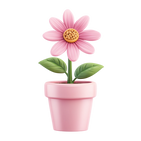What helps Newborn, Baby and Toddler Constipation
- Alana Taylor
- Apr 13, 2023
- 7 min read
Consitpation for Newborns
Constipation is a common issue in newborns and can be a source of discomfort for both the baby and the parents. It occurs when a baby has difficulty passing stool or passes stool less frequently than usual. Newborn constipation can be caused by several factors, including a change in diet, dehydration, or a lack of physical activity. In this blog, we'll explore what helps newborn constipation and what parents can do to alleviate the symptoms.
Introduce solid foods gradually: If your baby is older than six months, you can start introducing solid foods into their diet. This can help to stimulate the bowels and prevent constipation. However, it's important to introduce solid foods gradually and to avoid introducing any foods that are known to cause constipation, such as rice cereal.
Encourage physical activity: Physical activity is essential for keeping the digestive system functioning properly. You can encourage physical activity in your newborn by taking them for a walk in a stroller, playing with them on a play mat, or giving them a gentle massage. This can help to stimulate the bowels and prevent constipation.
Keep your baby hydrated: Dehydration can lead to constipation in newborns. To prevent dehydration, it's important to ensure that your baby is getting enough fluids, such as breast milk or formula. If your baby is not drinking enough fluids, you may need to offer them a bottle more frequently or give them extra water between feedings.
Use a baby suppository: In some cases, a baby suppository can be effective in relieving constipation in newborns. A baby suppository is a type of medication that is inserted into the rectum to stimulate a bowel movement. If you're considering using a baby suppository, it's important to talk to your doctor first to ensure that it's safe for your baby.
Try a warm bath: A warm bath can be effective in helping to relieve constipation in newborns. The warmth of the water can help to relax the muscles in the intestines and stimulate a bowel movement. To try a warm bath, fill your baby's bathtub with warm water and allow your baby to soak for 10-15 minutes.
Massage your baby's tummy: Massaging your baby's tummy can help to stimulate the bowels and relieve constipation. To massage your baby's tummy, gently rub their belly in a clockwise direction. You can also try gently pressing on their lower abdomen to help move the stool along.
Offer plenty of skin-to-skin contact: Skin-to-skin contact can be effective in helping to relieve constipation in newborns. The skin-to-skin contact can help to stimulate the bowels and relieve stress, which can contribute to constipation. To offer skin-to-skin contact, hold your baby close to your chest and let them feel your warmth and heartbeat.
In conclusion, constipation in newborns can be a source of discomfort for both the baby and the parents. By introducing solid foods gradually, encouraging physical activity, keeping the baby hydrated, using a baby suppository, trying a warm bath, massaging the baby's tummy, and offering plenty of skin-to-skin contact, parents can help to alleviate the symptoms of constipation in their newborn. However, it's important to talk to your doctor if you're concerned about your baby's constipation, as it could be a sign of an underlying medical condition.
Consitpation for Babies between 12 - 18 Months
Constipation in babies between the ages of 12 months and 18 months can be a common issue, but it can also be relieved with a few simple steps. Here are some tips that can help relieve constipation in this age group:
Increase fluid intake: Encourage your baby to drink plenty of fluids, such as water, breast milk, or formula, to help keep their stools soft and prevent constipation. You can also offer them pureed fruits and vegetables that are high in water content, such as peaches, pears, and cucumbers.
Introduce fiber-rich foods: Gradually introduce fiber-rich foods into your baby's diet, such as whole grain cereals, oatmeal, fruits, and vegetables. Fiber helps to prevent constipation by adding bulk to the stools and promoting regular bowel movements.
Encourage physical activity: Regular physical activity, such as crawling, walking, and playing, can help stimulate the bowels and prevent constipation. Encourage your baby to be active and play for at least 30 minutes a day.
Avoid foods that can cause constipation: Certain foods, such as rice cereal, cheese, bananas, and applesauce, can cause constipation in some babies. Avoid feeding your baby these foods, or limit their consumption, to prevent constipation.
Offer a warm bath: A warm bath can help to relax the muscles in the intestines and stimulate a bowel movement. Give your baby a warm bath for 10-15 minutes before a feeding, or when they are most active, to encourage a bowel movement.
Massage the tummy: Massaging your baby's tummy can help to relieve constipation. To massage their tummy, gently rub their belly in a clockwise direction, or use your fingers to apply gentle pressure to their lower abdomen.
Consult with a pediatrician: If your baby's constipation persists or is causing them distress, it's important to consult with a pediatrician. They can determine if there is an underlying medical condition causing the constipation and provide guidance on the best treatment options.
In conclusion, constipation in babies between the ages of 12 months and 18 months can be relieved with a few simple steps, such as increasing fluid intake, introducing fiber-rich foods, encouraging physical activity, avoiding foods that can cause constipation, offering a warm bath, massaging the tummy, and consulting with a pediatrician. By following these tips, you can help your baby relieve their constipation and promote healthy bowel movements.
Consitpation for Toddlers
Constipation is a common problem among toddlers and it can cause discomfort, pain, and even lead to other digestive issues. If your toddler is constipated, it’s important to take steps to help relieve the symptoms and prevent future instances of constipation. Here are some tips and strategies to help alleviate toddler constipation.
Encourage Hydration: One of the most effective ways to relieve constipation in toddlers is to increase fluid intake. When a child is dehydrated, their stools can become dry and difficult to pass. Encouraging your toddler to drink plenty of water throughout the day can help keep their stools soft and prevent constipation. Other beverages like milk, juice, and clear broths can also help keep your toddler hydrated.
Increase Fiber Intake: Fiber is important for digestive health and can help regulate bowel movements. Adding high-fiber foods to your toddler’s diet can help prevent constipation. Some good sources of fiber for toddlers include fruits, vegetables, whole grain breads, and cereals. If your toddler isn’t a fan of these foods, you can try mixing them into other dishes like smoothies or soups to help make them more appealing.
Promote Physical Activity: Physical activity is important for maintaining a healthy digestive system, and it can also help relieve constipation. Encourage your toddler to be active by going for walks, playing outside, or participating in physical play. Regular exercise can help stimulate the muscles in the digestive tract, promoting regular bowel movements.
Offer Warm Baths: A warm bath can be soothing for a toddler who is experiencing constipation. The warm water can help relax the muscles in the digestive tract, promoting bowel movements. You can also try gently massaging your toddler’s tummy in a clockwise direction to help stimulate the digestive system.
Use Gentle Stool Softeners: If your toddler’s constipation is severe, you may want to consider using a gentle stool softener. There are several over-the-counter stool softeners that are safe for toddlers, but it’s always best to talk to your pediatrician before using any new treatments. Your pediatrician can help you determine the best option for your child based on their specific needs.
Encourage Potty Training: If your toddler is in the process of potty training, it’s important to encourage them to use the toilet regularly. Encouraging regular bathroom trips can help prevent constipation by promoting regular bowel movements. You can also try positioning your toddler on the toilet after meals, as this can help stimulate the muscles in the digestive tract and encourage bowel movements.
Limit Dairy Products:Dairy products can be a common trigger for toddler constipation, so it may be helpful to limit your toddler’s intake of dairy products. If your toddler is experiencing constipation, try cutting back on dairy products for a few days to see if it makes a difference. If you find that dairy products are a trigger for your toddler, you can try switching to dairy-free alternatives like almond or soy milk.
Encourage Regular Mealtimes:Establishing regular mealtimes can also help prevent constipation in toddlers. When a child eats on a regular schedule, their digestive system is able to function more efficiently, promoting regular bowel movements. Encourage your toddler to eat three regular meals and two healthy snacks each day to help maintain a healthy digestive system.
In conclusion, toddler constipation can be a frustrating and uncomfortable experience for both the child and the parent. By following these tips and strategies, you can help relieve your toddler
Are you looking for a Professional Photographer?
Alana Taylor Photography is a specialised newborn and baby photography studio located in Cranbourne East servicing Melbourne and its surrounds. Due to my experience in Newborn Photography I am Melbourne's most highly sought after newborn and baby photographer. My experience, knowledge, patience and bubbly nature ensures happy clients and gorgeous photos to treasure. Alana Taylor Photography is a Professional Newborn and Baby Photographer who also specialises in Newborn Photography, Maternity Photography, Baby and Kids Photography and Cake Smash Photography in Melbourne.
To view more gorgeous images please head to my gallery or for more information on how to secure your session, please contact me here
Contact Alana Taylor Photography https://www.alanataylorphotography.com.au

Baby Photographer Melbourne, Cranbourne Newborn and Baby Photographer, Baby Photography Session Melbourne, Melbourne Baby Photographer, Melbourne newborn photography, Cranbourne baby photography, Melbourne baby photographer, Cranbourne newborn photographer, Professional photography in Cranbourne, Newborn photography in Melbourne, Cranbourne baby photography, Melbourne maternity photography, Cranbourne portrait photography, Melbourne baby photo shoots, Cranbourne newborn photo shoots, Melbourne maternity photo shoots, Cranbourne family photo shoots,, Professional photographers in Melbourne, Newborn photographers in Cranbourne, Baby photographers in Melbourne, Maternity photographers in Cranbourne, Cake Smash photographers Melbourne, Berwick photography studio, Melbourne photography services for babies, Cranbourne photography services for families, Melbourne photography services for maternity, Cranbourne photography services for newborns, Baby photography in Cranbourne and Melbourne, Newborn photography in Cranbourne and Melbourne, Cake smash photographer Melbourne, Cake smash photographer Pakenham, Melbourne cake smash photography, Dandenong cake smash photography, Cake smash photo shoot Melbourne, Cake smash photo shoot Cranbourne, Melbourne cake smash photographer, Cranbourne cake smash photographer, Professional cake smash photography in Melbourne, Professional cake smash photography in Cranbourne, Cake smash photography services in Melbourne, Cake smash photography Officer, Baby cake smash photography in Melbourne, Baby cake smash photography in Cranbourne




























